Description
Editorial
Global Journal of Business Management is fully devoted to diverse kind of empirical as well as theoretical investigations in the field of business management as one of the key issues in the contemporary world. It integrates two or more disciplines and provides a general platform for communication and cooperation among professionals, academicians, researchers, policy makers and those who are working in the field of management, organization behaviour, organizational development and business education in India and abroad. The objectives of journal are to promote the best management practices in fast changing organizational environment of corporate world. It also aims to publish original, well-written, self-contained research papers, book reviews and papers on newly constructed test that elucidate novel research and innovation in management which contributed significantly in the field of Management and Organizational Behaviour. The Journal also provides a vehicle to help professionals, academicians, researchers and policy makers, working in the field of management, organizational behaviour, organizational development and business education, to disseminate information and to learn from each other’s work. It is a pleasure to mention that scholars and professionals from different regions of India and abroad have contributed their articles and research papers to fulfil these objectives.
The advent of new globalised economic model with galloping heights in electronic and nanotechnologies have transformed the reality and perception of life itself. Though science may claim impartialness, no technology is neutral. It penetrates deeply to bring in innumarable changes in social order with a big package of stresses on all levels. On this background the first article in this issue on understanding work life balance by Singh and Chowdhury articulate the demands and pressure at work, home and experienced by self and role of coping strategy in making balance between work and life of IT professionals. The results of study indicate that respondents felt pressure and demand of work, family and experienced by self. Support from the family and organization and flexi time/hours are the best coping strategy used by these IT professionals. The present study suggests, counseling for the IT professionals could also play important role in achieving work life balance. Singh and Phiutongngam find out the relationship of decision making with leadership styles, cerebral dominance and type-A personality among managerial personnel. Results of the study shows that decision making is significantly correlated with task oriented leadership style, people oriented style, right hemisphere, integrated hemisphere and type A behaviour. They also find significant difference between low and high decision making behaviour on task oriented leadership style, people oriented leadership style, right hemisphere, integrated hemisphere and type A behaviour. Rajan and Senthil discuss the trend of entrepreneurship in ancient period, under British colonization, during freedom struggle, post independence, after liberalization and during the new economy era.
On the issue of well-being of working women, Kumar and Shrivastava draw attention to occupational stress and coping strategies. They find that working women are high on different dimensions of occupational stress i.e. role overload, role conflict, unreasonable group and political pressure, under participation, strenuous working conditions of occupation stress. On the other hand they are high on use of coping strategies like positive cognitive and distraction. Well-being of working women was significantly and negatively correlated with the dimension of occupational stress i.e. role overload, role ambiguity, unreasonable group and political pressure and intrinsic impoverishment. Shah and Sharma studies the role of job satisfaction in individual performance in BPO sector and find job satisfaction as a predictor of individual performance. Kumari and Khanna focus on the effect of quality of working life (QWL) on mental health of bank employees. The result reveales the significant correlation between QWL and health of the bank employees. A significant difference is seen between private and public sector employee on QWL and mental health. Social integration in the work organization and opportunity for continued growth are the predictor of mental health for public sector employee. Bur for the private sector safe and healthy working conditions are the predictor of mental health. Kaur, Kaur soch and Sabharwal pay attention on customer behavioural and attitudinal loyalty. It was seen that loyal customers build business by buying more, paying more, paying premium prices and act as an advocate of the products/services resulting in increased number of customers for the firm. Khalid and Ahmad discuss job satisfaction in the context of personality type and organizational settings. The findings of study indicate that distress was a salient factor in the public hospital settings followed by personality type in determining job satisfaction.
Ethical issues of bank services in Bangladesh are highlighted by Solaiman, Chowdhury & Udin. On the other hand, Hossain Sohel and Uddin studied the income participation in family and empowerment of working women in Bangladesh. They found that working women contribute a major portion of their income for their families. However, they are given less priority in decision making of their families. Attending the issue of managerial perspective on organizational effectiveness and organizational commitment Mishra finds that organizational effectiveness is multidimensional construct involving individual, group and organizational level functioning, while organization commitment is interrelated set of factors involving work, affect and continuance. The study suggests need for training in team orientation so that performance oriented group activities may be accelarated in the organization.
Editors are thankful to the each and all contributors. Hope, the first issue of Journal will inspire and generate interest among researchers, educationists, psychologists, policy makers and professionals to understand the new dynamics of business management. We seek the feedback from readers to make the journal a more effective vehicle of sharing new findings of research and views in the field of business management.
Contents
| Editorial | (iii) | |
| 1 | Understanding Work Life Balance: An Empirical Study of IT Sector | 1 |
| Shyodan Singh and Aheli Chowdhury | ||
| 2 | Relationship of Leadership Styles, Cerebral Dominance and Type-A Personality Decision-Making Behaviour among Managerial Personnel | 11 |
| A. P. Singh and P. Somchat Phiutongngam | ||
| 3 | Evolution of Entrepreneurship in India | 35 |
| S.N. Soundara Rajan and M. Senthil | ||
| 4 | A Study of Occupational Stress and Coping Strategies among Working Women in Relation to their Feeling of Well-being | 43 |
| Arun Kumar and S.K. Srivastava | ||
| 5 | Can Job Satisfaction Enhances Individual Performance: Empirical Study from BPO Sector | 55 |
| Hardik Shah and Vinay Sharma | ||
| 6 | The Quality of Working Life in Relation to Mental Health of Bank Employees | 69 |
| Patiraj Kumari and Pooja Khanna | ||
| 7 | Customer Loyalty: Behavioural, Attitudinal or Both? | 81 |
| Harsandaldeep Kaur, Harmeen Kaur Soch and Nidhi Sabharwal | ||
| 8 | Job Satisfaction: Interplay of Personality Type and Organizational Settings | 93 |
| Nageen Khalid and Iftikhar Ahmad | ||
| 9 | Ethical Issues in Marketing of Bank Services: A Study on Islami Bank Bangladesh Limited | 103 |
| Mohammed Solaiman, Md. Maruf Hossan Chowdhury and Md. Sarwar Uddin | ||
| 10 | Income Participation in Family Expenditure and Empowerment: A Study on Urban Working Women of Bangladesh | 117 |
| Mohammed Javed Hossain, Mir Hossain Sohel and Mohammad Nasir Uddin | ||
| 11 | Managerial Perspectives on Organizational Effectiveness and Organizational Commitment | 127 |
| Indiwar Misra |
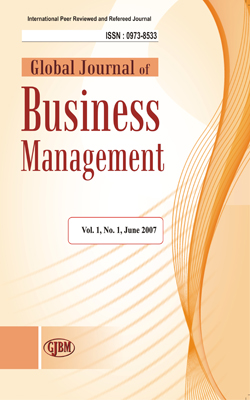






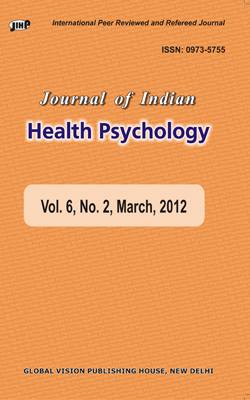
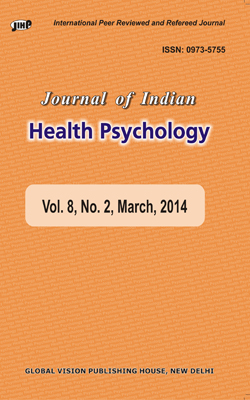
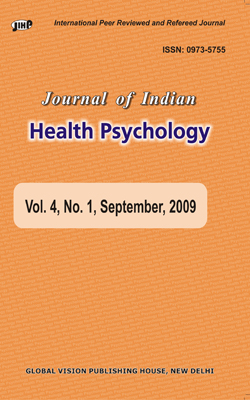
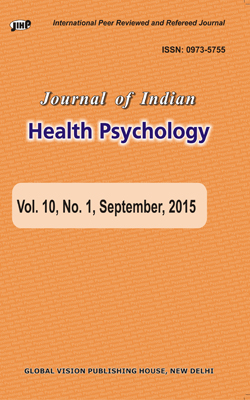
Reviews
There are no reviews yet.